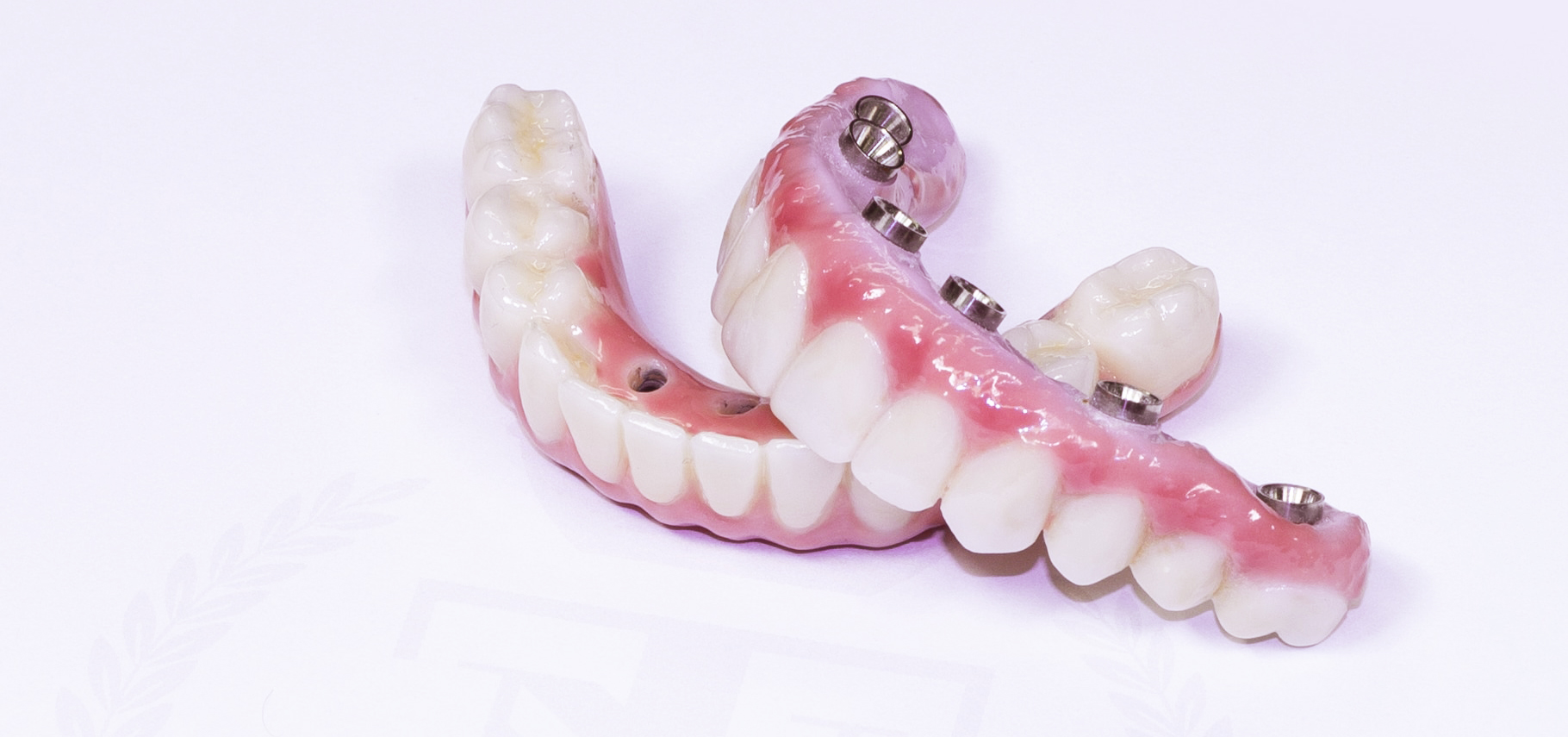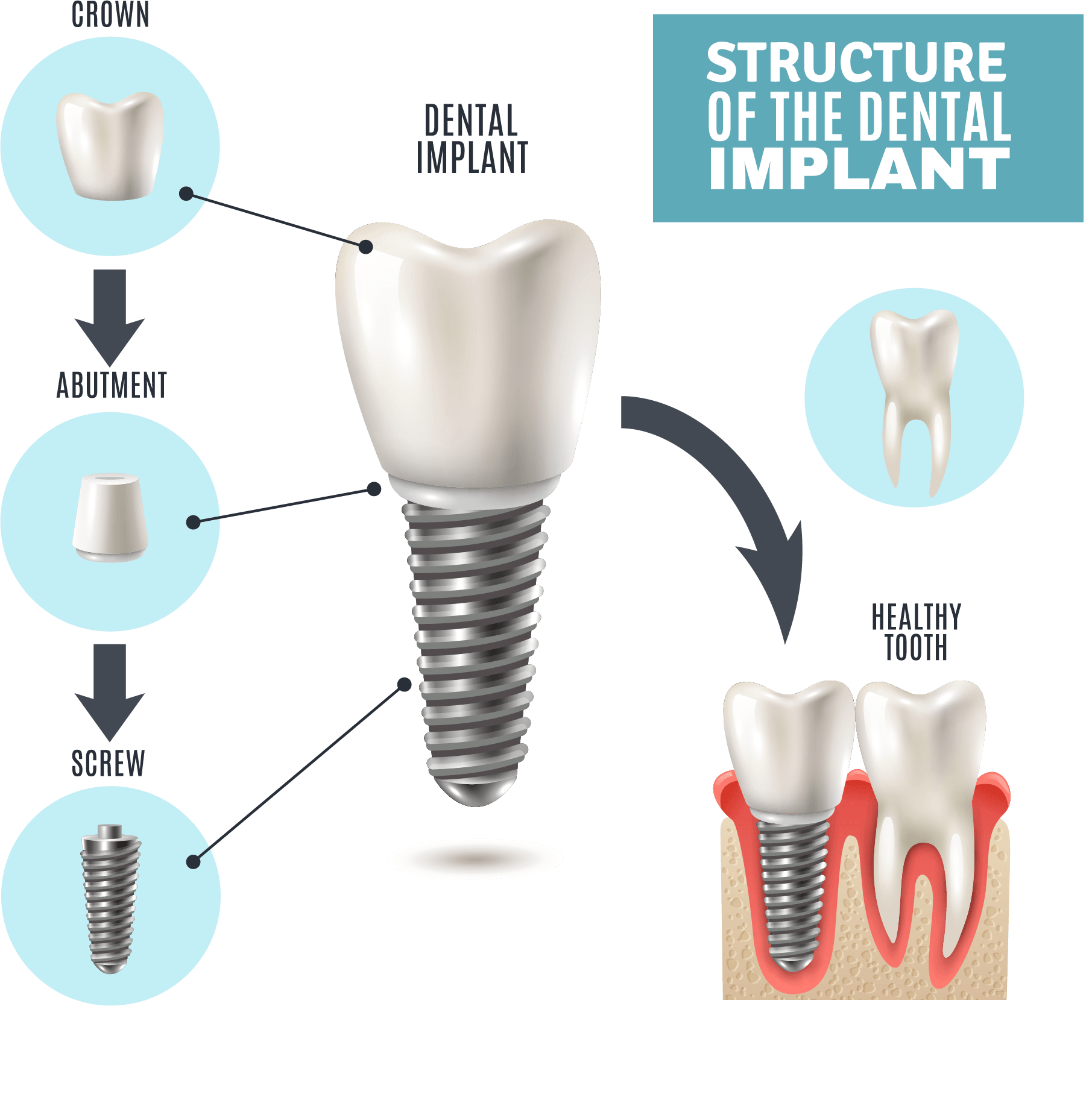
22
May
The secret facts about Dental Implant Costs

The secret facts about Dental Implant Costs
Table of ContentsUnknown but effective Dental Implant Prices3 methods for Tooth ReplacementHow to find qualified dentists for Dental Implant PricesThe secret info about Tooth ReplacementThe secret truths about Tooth Replacement
In spite of improvements in dental care, millions of people suffer tooth loss– mainly due to tooth decay, periodontal disease, or injury. For lots of years, the only treatment options available for people with missing teeth were bridges and dentures. But, today, dental implants are readily available. Dental implants are replacement tooth roots.
There are lots of advantages to dental implants, consisting of: Better look. Dental implants look like your own teeth. And because they are designed to fuse with bone, they end up being long-term. Improved speech. With poor-fitting dentures, the teeth can slip within the mouth triggering you to mumble or slur your words. Enhanced convenience. Since they become part of you, implants remove the pain of detachable dentures. Easier eating. Moving dentures can make chewing challenging. Dental implants function like your own teeth, allowing you to eat your favorite foods with confidence and without pain. Improved self-esteem. Dental implants can provide you back your smile and assist you feel much better about yourself. Dental implants do not need reducing other teeth, as a tooth-supported bridge does. Because nearby teeth are not changed to support the implant, more of your own teeth are left undamaged, enhancing long-lasting oral health. Private implants also enable simpler gain access to in between teeth, enhancing oral health. Toughness. Implants are extremely resilient and will last several years.
3 methods for Dental Implant Costs

Benefit. Detachable dentures are just that; removable. Dental implants get rid of the embarrassing hassle of removing dentures, in addition to the requirement for messy adhesives to keep them in location. Success rates of dental implants differ, depending on where in the jaw the implants are positioned however, in basic, dental implants have a success rate of approximately 98%. Embed Asset Override In the majority of cases, anyone healthy enough to undergo a routine dental extraction or oral surgery can be thought about for a dental implant. Clients ought to have healthy gums and adequate bone to hold the implant. They likewise should be devoted to great oral hygiene and routine dental gos to. If you are thinking about implants, speak to your dentist to see if they are best for you. In basic, dental implants are not covered by dental insurance at this time. Protection under your medical strategy might be possible, depending upon the insurance plan and/or reason for tooth loss. Comprehensive concerns about your individual requirements and how they connect to insurance coverage must be gone over with your dentist and insurance coverage supplier. The strategy addresses your particular requirements and is prepared by a team of professionals who are specifically trained and experienced in oral surgery and corrective dentistry. This team method offers collaborated care based on the implant choice that is best for you. Next, the tooth root implant, which is a small post made of titanium, is placed into the bone socket of the missing tooth.
How to find qualified dentists for Tooth Replacement
The recovery procedure can draw from 6 to 12 weeks. Embed Property Override Once the implant has bonded to the jawbone, a small adapter post– called an abutment– is attached to the post to securely hold the new tooth. To make the new tooth or teeth, your dentist makes impressions of your teeth, and develops a model of your bite (which captures all of your teeth, their type, and arrangement).
A replacement tooth, called a crown, is then connected to the abutment. Rather of several private crowns, some patients may have attachments put on the implant that keep and support a removable denture. Your dentist also will match the color of the brand-new teeth to your natural teeth. A lot of individuals who have actually received dental implants state that there is very little discomfort associated with the treatment. Local anesthesia can be used during the procedure, and a lot of patients report that implants involve less pain than a tooth extraction. Embed Possession Override After the dental implant, mild pain can be treated with over the counter pain medications, such as Tylenol or Motrin. Dental implants are metal posts or frames that are surgically placed into the jawbone below your gums. When in location, they enable your dentist to install replacement teeth onto them. Because implants fuse to your jawbone, they provide steady support for artificial teeth. Dentures and bridges installed to implants will not slip or move in your mouth a particularly crucial benefit when eating and speaking.
Relied on Dental Implants
For some people, common bridges and dentures are just not comfortable and even possible, due to aching areas, poor ridges or gagging. In addition, regular bridges must be connected to teeth on either side of the area left by the missing tooth. An advantage of implants is that no adjacent teeth need to be prepared or ground down to hold your brand-new replacement tooth/teeth in location. You need to likewise devote to keeping these structures healthy. Precise oral hygiene and regular dental visits are crucial to the long-lasting success of dental implants. Implants are normally more costly than other methods of tooth replacement, and most insurance providers generally cover less than 10 percent of the charges. The American Dental Association considers 2 types of implants to be safe. Once the surrounding gum tissue has recovered, a 2nd surgery is required to connect a post to the initial implant. Lastly, an artificial tooth (or teeth) is connected to the post-individually, or grouped on a bridge or denture. Subperiosteal implants these consist of a metal frame that is fitted onto the jawbone just below the gum tissue. Posts, which are connected to the frame, protrude through the gums. As with endosteal implants, synthetic teeth are then installed to the posts.Honest insights into Tooth Replacement
A dental implant is utilized to support several incorrect teeth. It is a titanium screw that can change the root of a tooth when it stops working. Just like a tooth root, it is put into the jawbone. Implants are a safe, reputable treatment. It’s probably real to say that implants, similar to natural teeth, will last for as long as you look after them. If you do not care for your implants they will establish a finish comparable to what you get on disregarded natural teeth. Left neglected, this can lead to gum infection, bleeding, pain and basic pain. You might get all these problems with natural teeth. If your implants are well taken care of, and if the bone they are fitted to is strong and healthy, you can anticipate them to last for numerous years. Yes. You can have any number of teeth changed with implants – from one single tooth to a total set. It depends upon the condition of the bone in your jaw. Your dentist will schedule a variety of special tests to learn the amount of bone still there. Placing an implant is frequently much easier than taking a tooth out and is usually done using a basic local anaesthetic. You will not feel any discomfort at the time but, similar to after an extraction, you may feel some discomfort during the week after the surgery. In some cases your dentist might give you a sedative if you are extremely nervous or if the case is a complicated one.Bhandal Smile Studio
BD Practice, 74 Birmingham Rd, Blackheath, Rowley Regis B65 9BA 0121 369 2636
